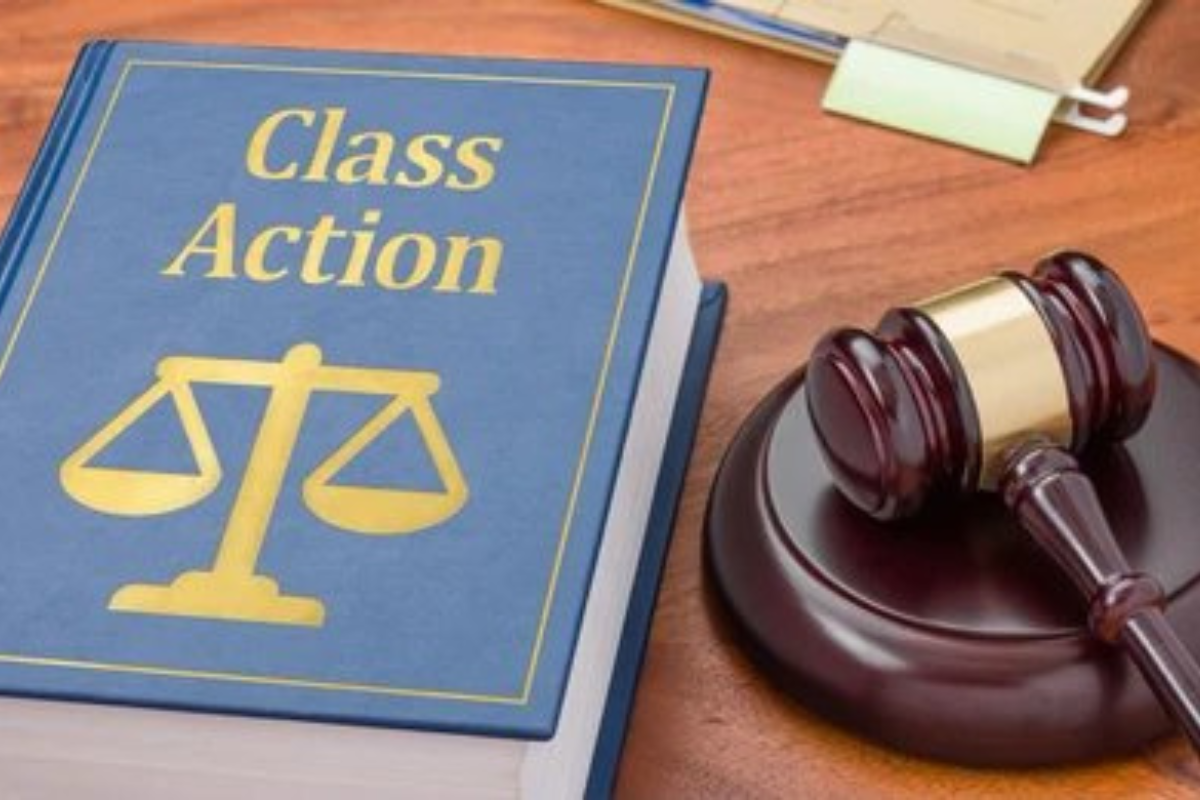Introduction
Class action lawsuits allow a group of people with the same complaint to join together and file a lawsuit. This can happen when many people are affected by the same problem, like a faulty product, a company’s bad behavior, or environmental harm. Instead of each person filing their own lawsuit, they come together to form a class. This makes it easier and more efficient to get justice.
Class action attorneys play a key role in these cases. They represent the group, making sure everyone’s voice is heard. Class action attorneys have special skills and experience. They know the complicated rules and processes involved. These attorneys work hard to gather evidence, build a strong case, and fight for fair compensation for everyone in the group.
Without class action attorneys, it would be hard for individuals to take on big companies or complicated legal issues alone. These attorneys help level the playing field, giving people a better chance to get justice and hold wrongdoers accountable.
What Is A Class Action Lawsuit?
Definition and explanation of class action lawsuits: A class action lawsuit is a legal case where a group of people with similar complaints come together to sue a defendant. Instead of filing many individual lawsuits, they combine their claims into one single lawsuit. This is done to make the process easier and more efficient. In a class action lawsuit, one or a few people represent the entire group, known as the “class.” The decision in the case affects all members of the class.
Common Reasons For Filing Class Action Lawsuits
There are many reasons why people file class action lawsuits. Some common reasons include:
- Consumer fraud: When a company sells faulty products or uses deceptive practices.
- Employment issues: When workers face unfair treatment, such as discrimination, wage theft, or unsafe working conditions.
- Environmental harm: When pollution or other environmental damage affects a community.
- Securities fraud: When investors are misled by false information about stocks or other investments.
Examples Of Notable Class Action Lawsuits
Several class action lawsuits have made headlines. Some well-known examples include:
- Tobacco litigation: In the 1990s, smokers sued tobacco companies for misleading the public about the dangers of smoking. The companies paid billions in settlements.
- Volkswagen emissions scandal: In 2015, it was discovered that Volkswagen had installed software in their cars to cheat on emissions tests. Car owners filed a class action lawsuit, leading to large settlements.
- BP oil spill: After the Deepwater Horizon oil spill in 2010, affected communities and businesses filed a class action lawsuit against BP, resulting in substantial compensation for damages.
The Role Of Class Action Attorneys
Explanation Of What Class Action Attorneys Do
Class action attorneys represent a group of people in a class action lawsuit. They gather evidence, file the lawsuit, and argue the case in court. Their goal is to get justice and fair compensation for the group. They handle all the legal work, making sure the lawsuit follows the proper procedures and rules. Class action attorneys work to prove that the defendant caused harm to the group and should be held responsible.
Differences Between Class Action Attorneys And Other Types Of Lawyers
Class action attorneys are different from other lawyers because they specialize in representing groups rather than individuals. They have experience handling large and complex cases that involve many plaintiffs. Unlike personal injury lawyers who focus on individual cases, class action attorneys manage the interests of the entire class. They must communicate with a large number of clients and coordinate their efforts to build a strong, unified case.
The Importance Of Having A Specialized Attorney For Class Action Cases
Having a specialized class action attorney is crucial for the success of the case. These attorneys understand the unique challenges and rules of class action lawsuits. They know how to handle the certification process, which allows the lawsuit to proceed as a class action. Class action attorneys have the skills to manage large amounts of evidence and deal with multiple defendants. They also have the resources to take on powerful companies or organizations, ensuring that the class has a fair chance to win the case. Without a specialized attorney, it would be difficult for the class to navigate the complex legal system and achieve a positive outcome.
How To Find A Qualified Class Action Attorney
Tips For Finding Experienced Class Action Attorneys
- Research online: Look for attorneys who specialize in class action lawsuits. Check their websites for information about their experience and past cases.
- Read reviews: Look at reviews from past clients to see what they say about the attorney’s skills and success rate.
- Ask for referrals: Talk to friends, family, or colleagues who might know a good class action attorney.
- Consult with multiple attorneys: Meet with several attorneys to discuss your case and see who you feel most comfortable with.
Factors To Consider When Choosing A Class Action Attorney
- Experience: Choose an attorney with a proven track record in class action lawsuits.
- Specialization: Make sure the attorney specializes in the type of case you are involved in, whether it’s consumer fraud, employment issues, environmental harm, or securities fraud.
- Resources: Ensure the attorney has the resources to handle a large, complex case. This includes a strong legal team and access to experts.
- Communication: Look for an attorney who communicates clearly and regularly updates you on the progress of the case.
- Fees: Understand the attorney’s fee structure. Most class action attorneys work on a contingency basis, meaning they only get paid if you win the case.
Resources For Finding Class Action Attorneys
- Online directories: Websites like Avvo, Martindale-Hubbell, and Lawyers.com list attorneys by specialization and location. They often include reviews and ratings.
- Legal associations: Organizations like the American Bar Association and local bar associations can provide referrals to qualified class action attorneys.
- Law firm websites: Many law firms have detailed information about their attorneys and their experience with class action lawsuits.
- Public records: Look for information on recent class action lawsuits to see which attorneys were involved and successful.
Steps Involved In A Class Action Lawsuit
Initial Investigation And Filing The Lawsuit
The first step in a class action lawsuit is the initial investigation. Class action attorneys gather information and evidence to determine if there is a valid case. They identify potential plaintiffs who have been harmed in a similar way. Once the attorney is confident in the case, they file the lawsuit in court. This document outlines the claims against the defendant and states that the case should proceed as a class action.
Certification Of The Class
Next, the court must certify the class. This means the judge decides if the case can go forward as a class action. The court looks at several factors, such as the number of plaintiffs, commonality of claims, and whether the representative plaintiffs can adequately protect the interests of the class. If the class is certified, the lawsuit moves forward. If not, plaintiffs may need to file individual lawsuits.
Discovery And Pre-trial Proceedings
During discovery, both sides gather more evidence to build their cases. This might involve paperwork, emails, and witness statements. Class action attorneys work to uncover as much information as possible to strengthen their case. Pre-trial proceedings may involve motions and hearings to resolve legal issues before the trial. These steps help both sides prepare for the possibility of going to court.
Settlement Negotiations Or Trial
Many class action lawsuits are settled before reaching trial. Settlement negotiations involve discussions between the plaintiffs and the defendant to reach an agreement. If both sides agree on a settlement, it is presented to the court for approval. If no settlement is made, the case goes to trial. In the trial, both sides show their evidence and make their arguments. The judge or jury then decides the result of the case.
Distribution Of Settlement Or Judgment
If the plaintiffs win the case, or if a settlement is approved, the next step is the distribution of the settlement or judgment. Class action attorneys work to ensure that the compensation is fairly distributed among all class members. This process can involve calculating individual payments based on the harm suffered by each plaintiff. In some cases, a claims process is established where class members must submit claims to receive their share of the settlement.
Benefits Of Hiring A Class Action Attorney
Expertise In Handling Complex Litigation
Class action attorneys have special skills and knowledge in managing complex legal cases. They understand the detailed laws and procedures that govern class action lawsuits. Their experience allows them to build strong cases, handle large amounts of evidence, and navigate the court system effectively. This expertise increases the chances of a successful outcome.
Ability To Manage Large Groups Of Plaintiffs
In a class action lawsuit, there can be many plaintiffs, sometimes even thousands. Class action attorneys are skilled at managing these large groups. They ensure that all plaintiffs’ voices are heard and that their interests are represented. They handle communication, coordinate efforts, and keep everyone informed about the progress of the case.
Resources And Support For Extensive Legal Battles
Class action attorneys often work for law firms with significant resources. These resources include access to expert witnesses, advanced technology for handling evidence, and a team of legal professionals. This support is crucial for taking on big corporations or complex legal issues. It allows the attorneys to fight for justice without being overwhelmed by the defendant’s power or money.
Potential For Higher Compensation Through Collective Action
One of the main benefits of a class action lawsuit is the potential for higher compensation. When individuals join together in a class action, they increase their bargaining power. This collective strength can lead to larger settlements or judgments than if each person filed a separate lawsuit. Class action attorneys work to maximize this compensation, ensuring that all class members receive fair and adequate payments for their losses.
Common Types Of Class Action Lawsuits
Consumer Fraud And Product Liability
Consumer fraud occurs when companies deceive buyers into purchasing defective or misleading products. Class action lawsuits in this area often involve issues like false advertising, misleading claims, or unsafe products. Product liability cases focus on defects that harm consumers, such as faulty vehicles, dangerous drugs, or contaminated food. When many people are affected in similar ways, they can join together in a class action to seek compensation from the company responsible.
Employment And Labor Disputes
Employment and labor disputes involve issues between workers and employers. Common class action lawsuits in this category include wage theft, where employees are not paid for all the hours they work, and discrimination, where workers are treated unfairly based on race, gender, or other factors. Class action lawsuits can also address unsafe working conditions or violations of labor laws. By combining claims, employees can address widespread issues that affect large groups of workers.
Securities Fraud And Shareholder Lawsuits
Securities fraud involves misleading information about investments or financial products, affecting shareholders and investors. Class action lawsuits in this area may arise from false statements by companies about their financial status or illegal trading practices. When investors lose money due to such fraud, they can join together in a class action to recover their losses. These lawsuits help hold companies accountable and provide compensation to affected shareholders.
Environmental And Public Health Cases
Environmental and public health cases deal with harm caused by environmental damage or public health issues. Examples include pollution from industrial activities or contamination of drinking water. Class action lawsuits can be filed by communities or individuals who suffer from these issues. The goal is to address widespread harm and seek damages for health problems or environmental damage affecting many people.
How Class Action Attorneys Are Compensated
Contingency Fees Vs. Hourly Rates
Class action attorneys usually work on a contingency fee basis, meaning they only get paid if the lawsuit is successful. Their fee is usually a percentage of the total amount awarded in the case. This arrangement aligns the attorney’s interests with the plaintiffs’ goals, as the attorney only earns a fee if the plaintiffs win or reach a settlement.
In contrast, some attorneys might work on an hourly rate basis, where they charge for the time they spend working on the case. This method is less common in class actions due to the high costs and complexity involved. In class action cases, the contingency fee model is preferred because it minimizes upfront costs for plaintiffs and provides strong motivation for attorneys to win the case.
How Attorneys’ Fees Are Awarded In Class Action Settlements
In a class action lawsuit, the attorneys’ fees are usually awarded as part of the settlement or judgment. The court must approve the fees to ensure they are reasonable and fair. The fee amount is often negotiated between the attorneys and the defendant before finalizing the settlement. Once approved, the fees are deducted from the total settlement amount. The remaining funds are then distributed among the class members. In some cases, a percentage of the settlement is set aside specifically for legal fees, while the rest is divided among the plaintiffs.
Factors Influencing The Cost Of Legal Representation In Class Actions
Several factors can influence the cost of legal representation in class action lawsuits:
- Complexity of the case: More complex cases, involving extensive evidence or multiple legal issues, may require more time and resources, leading to higher costs.
- Number of plaintiffs: Larger class sizes can increase the cost, as more effort is needed to manage and communicate with a large group.
- Duration of the case: Longer cases involve more legal work, increasing the overall cost.
- Attorney’s experience: More experienced attorneys may charge higher fees due to their expertise and track record in handling similar cases.
- Legal expenses: Costs such as expert witness fees, court filing fees, and administrative expenses also impact the total cost of legal representation.
Success Stories Of Class Action Attorneys
Case Studies Of Successful Class Action Lawsuits
- Tobacco Litigation (1990s): The tobacco litigation was a landmark class action lawsuit where smokers sued major tobacco companies for misleading the public about the dangers of smoking. The class action attorneys representing the plaintiffs managed to secure billions of dollars in settlements from companies like Philip Morris and RJ Reynolds. This case exposed the tobacco industry’s deceptive practices and led to major changes in advertising regulations and public health policies.
- Volkswagen Emissions Scandal (2015): In 2015, it was revealed that Volkswagen had installed software to cheat on emissions tests. Class action attorneys filed a lawsuit on behalf of car owners who had been misled. The settlement resulted in Volkswagen agreeing to pay over $15 billion in compensation, including vehicle buybacks and environmental initiatives. This case highlighted corporate deceit and led to increased scrutiny on environmental regulations.
- BP Oil Spill (2010): After the Deep-water Horizon oil spill, a class action lawsuit was filed against BP by affected businesses and communities. Class action attorneys secured a settlement worth $20 billion. This money was used to compensate those impacted by the spill and fund environmental restoration efforts. The case brought attention to environmental protection and corporate responsibility.
Impact Of These Cases On Plaintiffs And Society
- Financial Compensation: In each of these cases, plaintiffs received significant financial compensation. The settlements provided relief to individuals and businesses affected by the actions of large corporations. For many, this compensation helped cover losses and damages that would have been difficult to address individually.
- Legal and Regulatory Changes: These successful class action lawsuits often lead to changes in laws and regulations. For example, the tobacco litigation resulted in stricter advertising rules and public health warnings. The Volkswagen case prompted stricter emissions standards and better enforcement of environmental laws.
- Increased Corporate Accountability: These cases demonstrated that large corporations can be held accountable for their actions. They sent a message that deceitful practices and environmental damage have serious consequences. This increased accountability helps protect consumers and the environment.
- Public Awareness: High-profile class action lawsuits raise public awareness about important issues. They inform people about the risks of certain products, corporate practices, and environmental hazards. This increased awareness can lead to better consumer choices and more informed public debate.
Challenges Faced By Class Action Attorneys
Legal And Procedural Hurdles In Class Action Litigation
Class action attorneys often face significant legal and procedural hurdles. One major challenge is class certification. Attorneys must convince the court that the case meets all criteria for a class action, such as common issues and sufficient representation. This process can be complex and time-consuming, requiring detailed evidence and legal arguments.
Additionally, class action lawsuits involve intricate procedural rules. Attorneys must navigate these rules carefully to ensure the case progresses smoothly. This includes handling extensive documentation, managing deadlines, and addressing any legal motions or objections from the defendant. Missteps in these procedures can delay the case or even lead to its dismissal.
Managing Communication With Large Groups Of Plaintiffs
Another challenge is managing communication with a large number of plaintiffs. Class action attorneys must keep everyone informed about the case’s progress and important developments. This requires setting up efficient systems for communication and updates. Keeping all class members engaged and informed while addressing their individual concerns can be overwhelming, especially in large-scale cases.
Balancing The Interests Of Individual Plaintiffs With The Collective Group
Class action attorneys also need to balance the interests of individual plaintiffs with those of the collective group. While the goal is to serve the best interests of the entire class, individual plaintiffs may have different needs or expectations. Attorneys must manage these differences carefully to ensure that the settlement or judgment is fair to all members of the class.
This balance can be tricky, as what benefits one group member might not benefit another equally. Ensuring that the settlement or resolution addresses the concerns of the entire class while still being fair and equitable to each plaintiff is a critical and challenging aspect of class action litigation.
Recent Developments In Class Action Law
Changes In Legislation Affecting Class Action Lawsuits
Recent years have seen several changes in legislation that impact class action lawsuits. One significant change is the Federal Rules of Civil Procedure amendments, which have adjusted the standards for class certification. These amendments aim to make it more challenging to certify a class, ensuring that only cases meeting strict criteria proceed as class actions. The changes emphasize the need for detailed proof of common issues among plaintiffs.
Additionally, several states have enacted laws that restrict class action lawsuits in specific areas, such as consumer protection and employment. These laws often set higher thresholds for class certification or limit the types of claims that can be brought as class actions. This legislative trend reflects a growing concern about the impact of class actions on businesses and the court system.
Trends And Future Outlook For Class Action Litigation
- Increased Scrutiny and Regulation: There is a trend toward increased scrutiny and regulation of class action lawsuits. Courts and legislators are focusing on ensuring that class actions are not used for strategic or abusive purposes. This trend may lead to stricter requirements for class certification and more rigorous standards for proving claims.
- Focus on Consumer Protection: Class actions related to consumer protection and data privacy are expected to continue rising. As technology advances and consumer data becomes more valuable, cases involving privacy violations and deceptive practices are likely to increase.
- Emergence of New Legal Theories: New legal theories and claims are emerging in class action lawsuits. For example, there is growing interest in environmental and social justice issues. These new theories reflect evolving societal concerns and may shape the future of class action litigation.
- Alternative Dispute Resolution: There is a growing trend toward using alternative dispute resolution (ADR) methods, such as arbitration, in class action cases. ADR can offer a quicker and less costly resolution compared to traditional court trials. This shift may impact how class actions are handled and resolved in the future.
Conclusion
Class action attorneys play a crucial role in seeking justice for individuals affected by widespread issues. Their expertise and dedication help navigate complex litigation, manage large groups of plaintiffs, and balance diverse interests. For those considering a class action lawsuit, finding a qualified attorney is essential to ensure effective representation and maximize potential outcomes. Class action lawsuits significantly impact justice and society by holding wrongdoers accountable, fostering corporate responsibility, and providing compensation to affected groups. They highlight the power of collective action in addressing large-scale injustices and driving meaningful change.
FAQs
1. What qualifications should a class action attorney have?
A class action attorney should have specific qualifications including extensive experience in handling class action lawsuits. They should be skilled in complex litigation, have a deep understanding of the legal requirements for class certification, and be able to manage large groups of plaintiffs effectively. Look for attorneys with a proven track record in similar cases and strong references or reviews from previous clients.
2. How long does a class action lawsuit typically take?
The length of a class action lawsuit can differ greatly. It typically takes several months to several years to resolve. Factors that influence the timeline include the complexity of the case, the number of plaintiffs, and the court’s schedule. Some cases may settle out of court, which can speed up the process, while others may involve lengthy trials and appeals.
3. What is the likelihood of winning a class action lawsuit?
The likelihood of winning a class action lawsuit depends on various factors including the strength of the evidence, the legal arguments presented, and the ability to meet the requirements for class certification. While class action lawsuits can be successful, they are complex and challenging. A qualified class action attorney can provide a better assessment based on the specifics of the case.
4. Can I join a class action lawsuit after it has been filed?
Yes, you can often join a class action lawsuit after it has been filed, as long as you meet the criteria for the class. There may be specific deadlines and procedures for joining, so it’s important to contact the attorney handling the case as soon as possible to determine if you are eligible to participate.
5. What happens if a class action lawsuit is unsuccessful?
If a class action lawsuit is unsuccessful, the plaintiffs may not receive any compensation. Additionally, the defendant may not be held liable for the alleged issues. In some cases, plaintiffs may be responsible for certain legal costs or expenses if the court rules against them. However, many class action cases are settled before trial, reducing the risk of a complete loss.
6. How is the settlement amount distributed among plaintiffs?
In a class action lawsuit settlement, the settlement amount is typically distributed among plaintiffs












Got a Questions?
Find us on Socials or Contact us and we’ll get back to you as soon as possible.